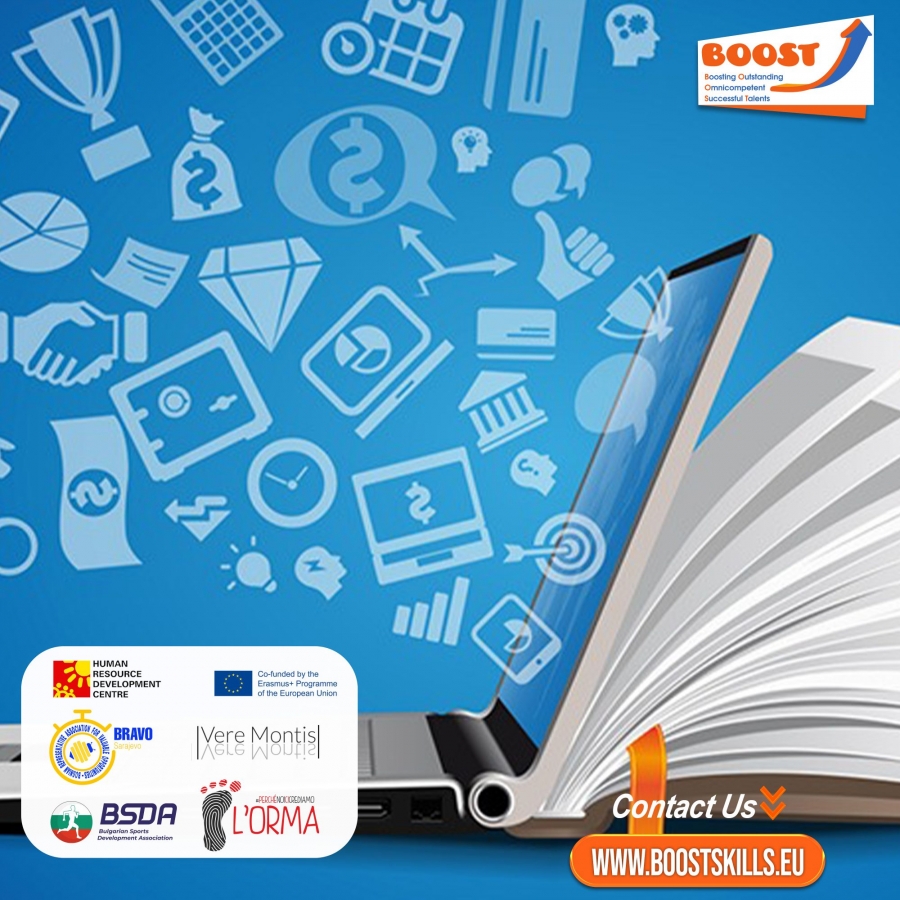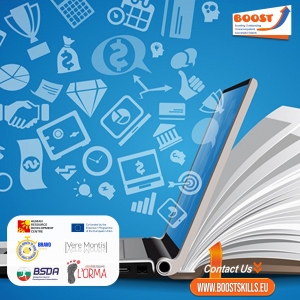
BOOST Handbook


With an eye on the forthcoming Industrial Revolution 4.0, the whole world must swiftly adapt to change; the youth sector is no different. The primary goal of the #BOOST handbook is to empower youth workers to raise awareness among young people that skills development is crucial for labour market inclusion and quality personal development within their individual lives. Beyond youth workers, all actors who engage with young people such as educational institutions, career orientation entities, sports organisations, and even active players within the formal educational system represent the primary target for the BOOST handbook.
Innovation:
The novel nature of the BOOST handbook within the youth sector helps ensure its innovative benefits and that it greatly contributes to the quality of structured youth activities within partner countries and across Europe during the lifetime of the project. Further, BOOST focuses on “skills and knowledge of the future” and how we can support parties that deliver youth activities to recognise and transmit these to the target groups they work with. The Industrial Revolution 4.0 and its impact on the youth sector itself is still a new approach in high demand already across varying economic fields within the EU; as project deliverables are based on the principle of OER/open educational resources, outputs easily reach all youth workers including those who work with youngsters facing fewer opportunities.
Impact:
The edition represents one of the first handbooks in the field of transversal skills development, focusing on practical application by youth workers and stakeholders on various levels. Provided printed copies (50pc per country) serve as a guidebook youth organisations can use to improve their processes while at the same time empower them to prioritise transversal skills development. Beyond this, sports schools and universities can also refer to this educational material.
Transferability:
This approach is transferable to other sectors such as education, sports, and the culture social field, all of which work with young people; possessing a concrete product geared specifically toward actual needs allow these sectors to carry out related activities with a clear focus on exact skillsets ripe for development. At the same time, this is also transferable to all youth policy levels spanning local youth organisations and national or European youth structures. The output can also serve as a useful tool for HR departments of private companies, which can use the accumulated knowledge to foster professional and personal development among their employees.
The BOOST handbook ultimately serve as a practical tool for any youth organisation, youth worker and educational expert who is engaged with youth empowerment in both Europe and the world at large. It also channel vital information to multiple business organisations looking to develop transversal skills within potential employees across all sectors. The handbook is available online (pdf), on the BOOST e-platform at www.boostskills.eu (EN, BG, BH, HR, IT), and via a paper copy (in English) set for distribution to interested actors at both the local and international level. As one of the first editions on the topic available for the youth sector, the handbook devote itself to transversal skills - regarding both their overall importance and how to further develop them in young people.














